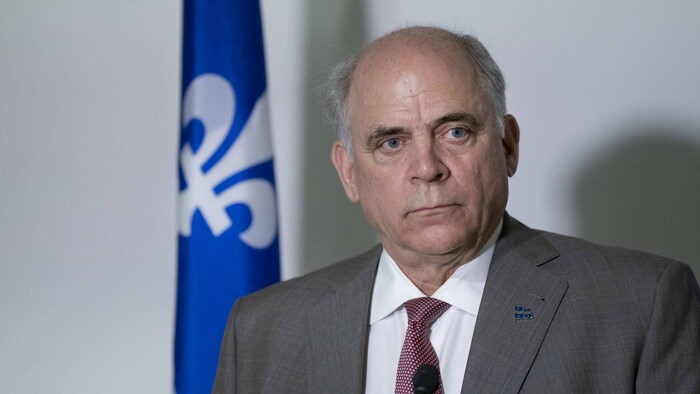The Swedish company Northvolt was reluctant to set up headquarters in California or Quebec. What convinced the battery cell manufacturer? Certainly hydropower, but perhaps also financing terms.
To attract the company, François Legault’s government will do the same as its neighbor Ontario, Radio-Canada has learned. This means it will create a joint program with Ottawa to compete with the United States. This aspect will be part of the announcement scheduled to be made at 11 a.m. when Northvolt arrives in McMasterville, Montérégie.
Every production has a subsidy. This was also the agreement reached between the federal government, Ontario and automakers Stellantis-LGES and Volkwagen. They are entitled to performance incentives commensurate with production.
According to our information, Quebec and Ottawa will invest $2.7 billion to build the Northvolt plant.
This is a response toInflation reduction law (IRA) applicable in the United States. This law, adopted by the Biden administration, aims to be dynamic to attract foreign investments worth billions of dollars.
The Legault and Trudeau governments will therefore emulate the IRA. Every time Northvolt produces a cell, a variable amount will be provided as a subsidy. The federal government will provide two-thirds of the funding, and Quebec, one-third.
In total, we already know that public and private investments for this four-plant complex will approach seven billion dollars.
Since this financing program is intended to be equivalent to the United States program, it will serve as a financing program Mirror
. This means that if US IRA incentives are reduced or eliminated — by the Biden administration or its successor — the same will happen in Quebec.
Investments pay off in nine years
According to our information, Quebec estimates that its investments will be profitable within a maximum of nine years.
A source familiar with the matter adds that this estimate is governor
And to caution
where profitability can be proven long before that.
To avoid criticism, Quebec used the Parliamentary Budget Officer’s methodology in Ottawa to produce its estimates.
A report from the latter, a few weeks ago, indicated that the $28 billion subsidy granted to the battery factories of Stellantis-LGES and Volkswagen would not be profitable for 20 years.
A timeline four times longer than that estimated by the Trudeau government, which claimed to have recouped its investments in just five years.
Investments worth $30 billion
With the arrival of Northvolt, which Economy, Innovation and Energy Minister Pierre Fitzgibbon called “the largest private project in Quebec’s history,” at least $15 billion will be invested in Quebec’s battery sector by governments and companies. .
Projects that have created at least 6,000 jobs so far.

Minister of Economy, Innovation and Energy Pierre Fitzgibbon
Photo: Radio-Canada/Ivanoh Demers
The Legault government expects the volume of public and private investments to rise to $30 billion by June 2024, when the second phases of the GM-Posco projects in Bécancour and Northvolt south of Montreal could be announced.
The Swedish giant also plans to install its factory by the end of 2026 on an area equivalent to 75 football fields. Since he bought twice the surface area, equivalent to 320 plots of land, expansion is certainly possible.
With information from Louis Blouin

“Music guru. Incurable web practitioner. Thinker. Lifelong zombie junkie. Tv buff. Typical organizer. Evil beer scholar.”






More Stories
After the discovery of norovirus, these berries should not be eaten.
Mechanics Strike | WestJet Cancels Nearly 700 Flights, Affects Nearly 100,000 Passengers
Three 'basic' Airbnb listings: Owner shares how he easily skirted the rules